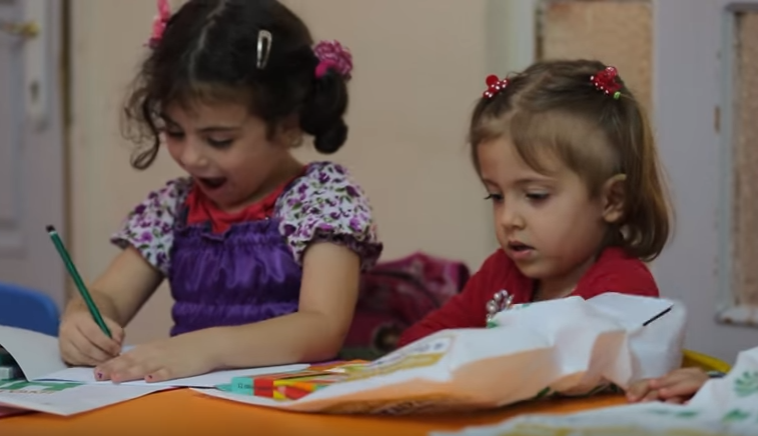Education
Economic difficulties, lack of infrastructure, missionary activities, lack of education and so on do not only have bad impact on the lives and future of people in poor countries but also leave them vulnerable against ruthless exploitation of international powers. Wars and crises only help this exploitation. Following the occupation of Iraq by international powers which resulted in millions of people becoming refugees and thousands of children becoming orphaned, the terrorism emerged and turned Middle East into a pit of fire by taking advantage of uneducated generations. Neverending war in Syria is another potential source of future problems.
We are working toward construction, renovation and refurbishment of schools, madrasas, institutes and similar educational institutions in places where the education is interrupted and the present sources are insufficient. We also help students in conflict areas to continue their education in Turkey or in other countries and educators to get Professional trainings. Moreover we are organizing cultural activities in areas where Muslims are exposes to foreign cultural assimilation and intensive missionary activities; providing textual and visual material where needed; setting up cultural centres; building places of worship; running vocational training programs; commissioning translation of scholarly works and setting up publishing houses.
IHH opened 44 schools in 20 countries so far.

Investing to the Future: Houses of Knowledge by IHH IHH orphanages serve beyond places of accommodation for orphans. The orphanages being mostly strategically located are built according to the specific nature of the region. In Patani where Muslims are systematically oppressed students are not able to get education in their mother tongue or learn about Islamic teachings at school. Orphanages built by IHH in the region follow in the pattern of local madrasa tradition of this territory thus provide both accommodation and education. Hence orphans are taken care of while problems of education in mother tongue and Islamic education are resolved. In similar vein orphanages built in Pakistan following the great earthquake had the goal to protect orphans from the missionary organizations. Today IHH orphanages and colleges who have evolved to be institutions of education are considered among the prestigious schools in Pakistan.
Opened in 2013, the education center in Somalia, which has been plagued with civil war over the past 20 years, serve 1500 students out of which 400 is boarding students. The center features a school, a school, a dormitory, a clinic and playgrounds. The education center aims at giving the children who had to quit school due to war or poverty a better future. Hence it is the biggest investment in children who are the future of the country. School of Agriculture that is opened in Somalia aims at giving grown up students a profession thus contribute to the country’s economy.
As a result of the predominant culture’s hegemony Islamic education in Nepal is as bad as it was in Mecca. Likewise Muslim women are kicked out of home by their husbands and abandoned. People have to face many challenges as soon as they become Muslim. They are discriminated in social life; shunned by their family and friends; fired from their jobs. Nonetheless they keep struggling and making da’wah. They desperately need a place of worship, education center, textual resources, financial and moral support. IHH is building an Islamic center in Nepal’s capital Katmandu in order to meet Muslims’ needs. Nepal Islamic Center will serve as a shelter for those kicked from their homes, as a school for those who want to learn about Islam, as a library for those who want to reach the resources, as a mosque for those who want to worship in peace, as a meeting place for those who want to discuss their issues.